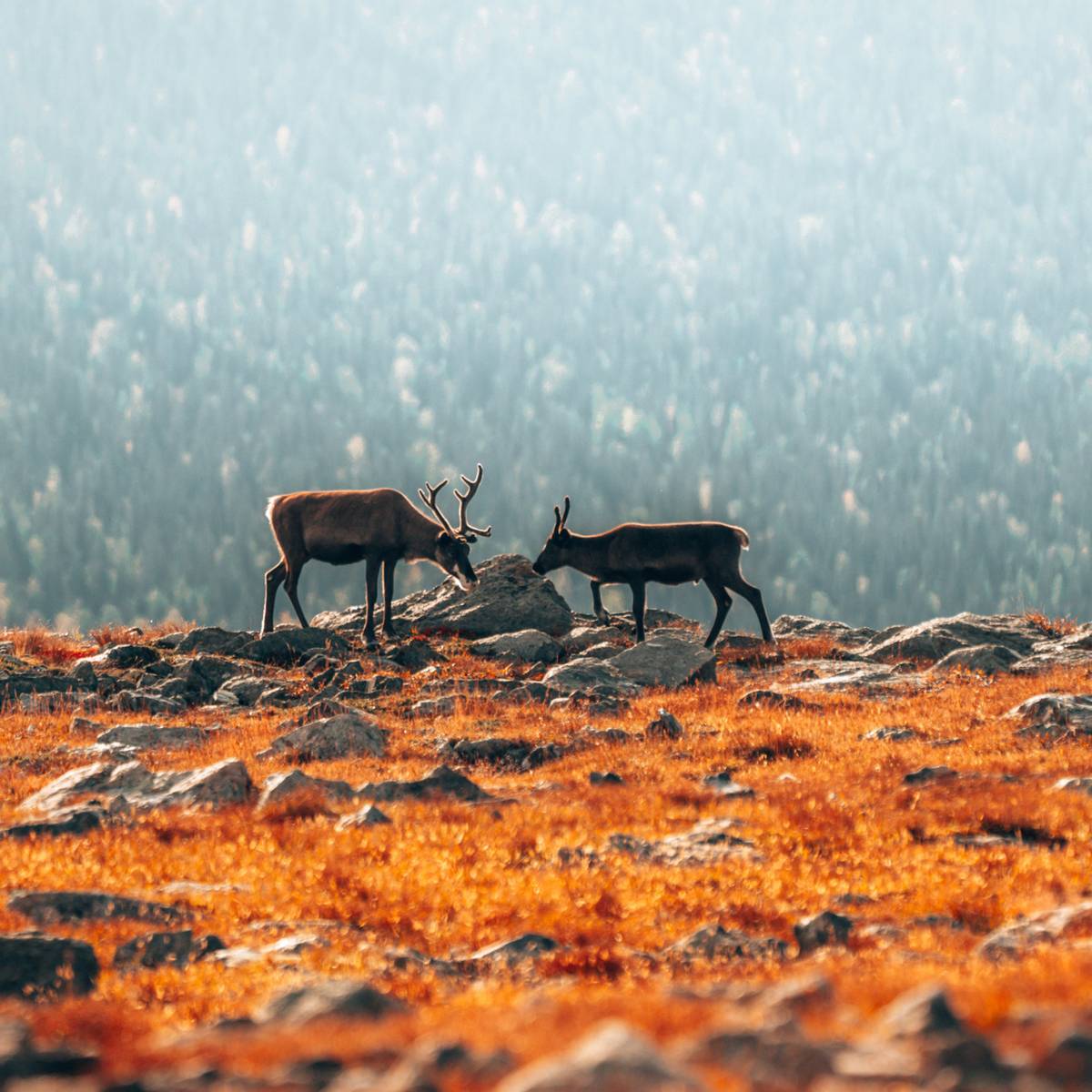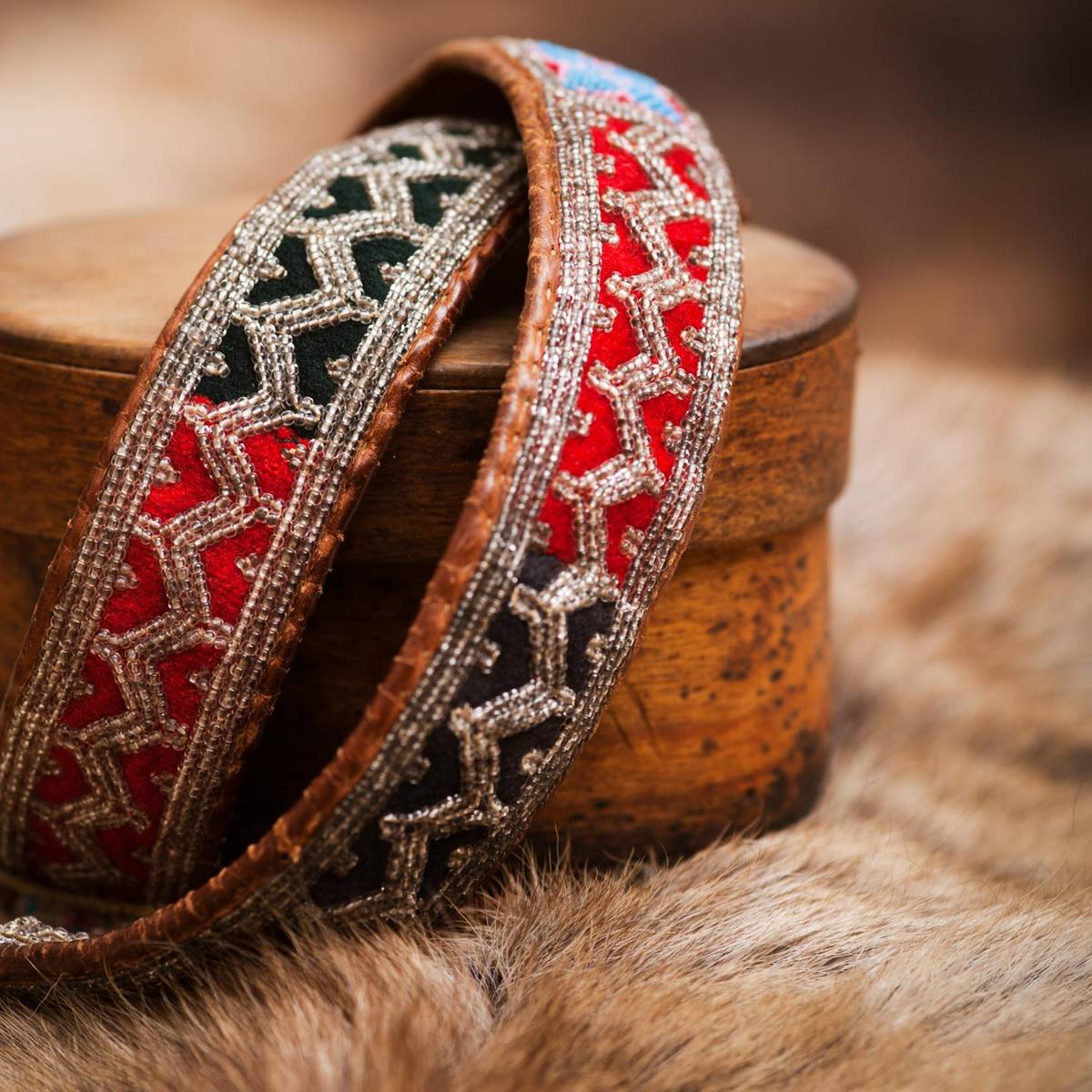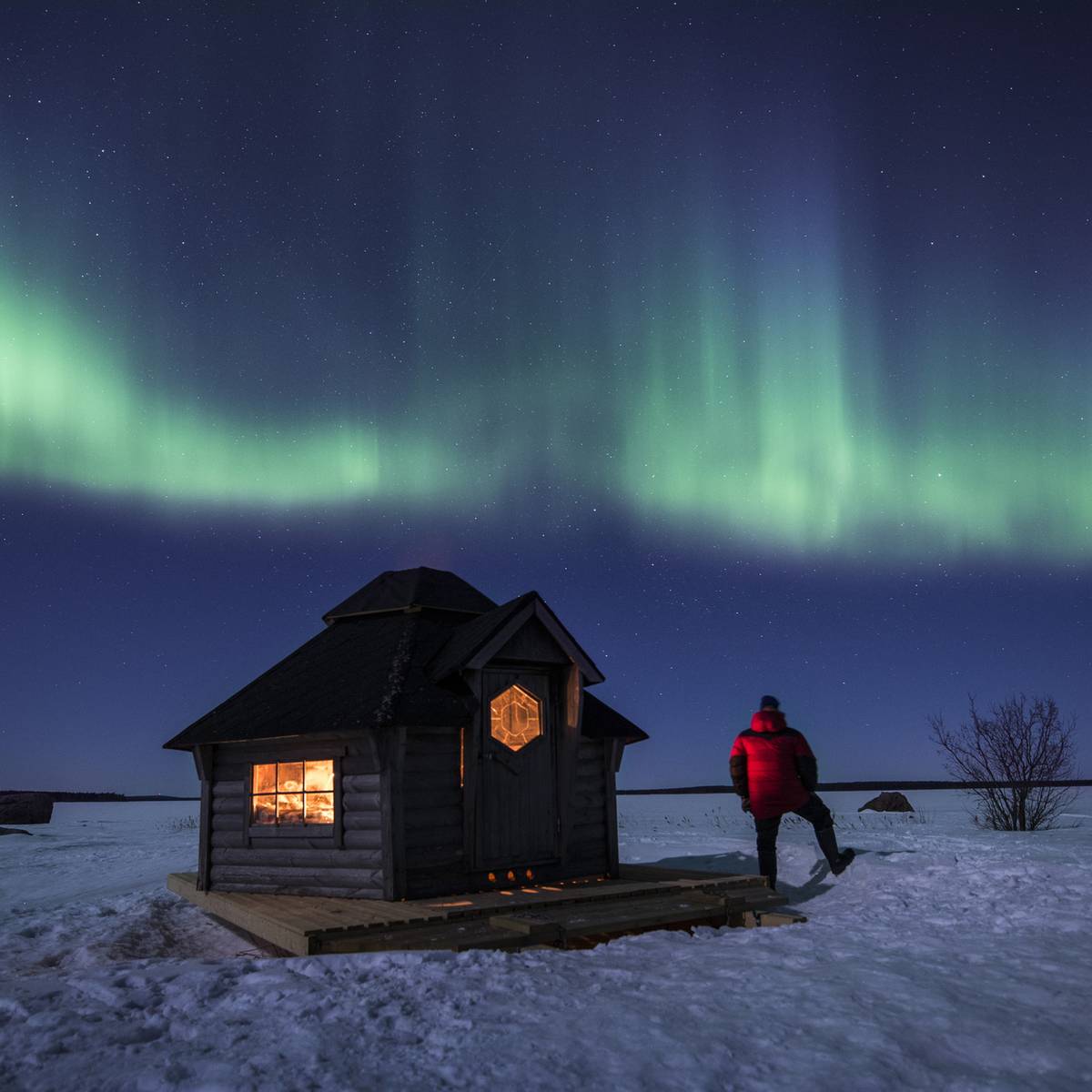The Sámi food culture and its sustainable main ingredients
Sustainability and tradition are the cornerstones of Sámi cuisine. Local, seasonal produce plays a vital role, with many ingredients foraged from nature – including herbs, roots, lingonberries, and the prized cloudberry, a rare amber-coloured delicacy rich in nutrients.
Reindeer meat is a cornerstone of Sámi food culture, often enjoyed smoked – a delicacy known as ‘suovas’. In fact, in 2003, 'suovas' became Sweden’s first Slow Food Presidia product, a recognition by the international Slow Food movement for culturally significant, sustainably sourced foods. Reindeer meat is also featured in hearty stews and sausages. Elk frequently appears on the menu, while fish like Arctic char and whitefish are caught fresh from local rivers and lakes – both fishing and hunting remain central to the Sámi way of life.
Be sure to try Kalix Caviar, a unique product from Swedish Lapland and the first Swedish food to be awarded Protected Designation of Origin (PDO) status by the EU – placing it alongside famous names like Champagne and Parma ham. Cheese lovers can also explore artisanal offerings from small-scale dairy farms across Sápmi, with Svedjan Ost in Västerbotten being a notable example.
No Sámi experience would be complete without 'kokkaffe' – coffee brewed over an open fire – accompanied by dried, smoked reindeer meat and a breathtaking view of the Swedish highlands. This is how the Sámi often take their coffee break while keeping track of their reindeer herds.
For a more extensive culinary experience, try the tasting menu at The Veranda, the fine dining restaurant at the Icehotel. Another excellent option is Huuva Hideaway, a retreat in the village of Liehittäjä, where you can enjoy immersive dining experiences rooted in Sámi tradition.
Wherever you travel in Swedish Sápmi, you’ll encounter the origins of sustainable ideals that continue to influence Swedish culture today. As a visitor, it’s important to respect the Sámi culture and customs, remembering that you are a guest in Sápmi – the ancestral land of the Sámi people.


























